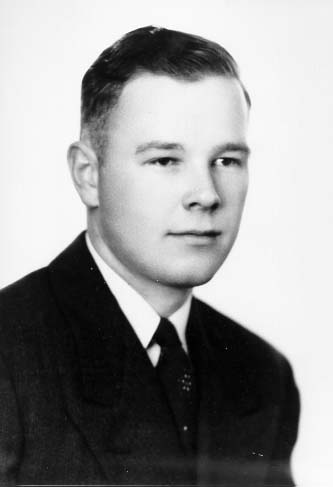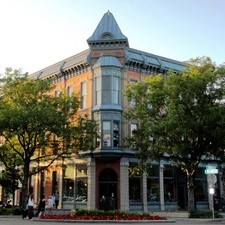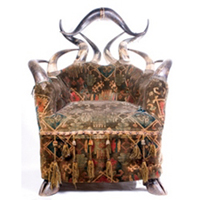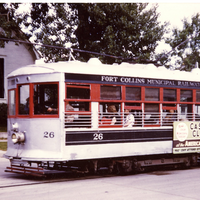Everything Was Directed Toward the War Effort
Everything Was Directed Toward the War Effort
Dr. Robert H. Pike
January 24, 1995
Interviewer: Sharon Lance
Bob Pike singing "In Der Fuhrer's Face"
(WAV format/13,252K)
Robert Pike attended Fort Collins High School during W.W.II.. Feeling part of "the war effort" was central to everyday life in Fort Collins. Rationing of food, gasoline, and clothing, observing the "blackouts," saving paper, scrap metal and cooking fat, growing a "Victory Garden," all were part of the home town contribution. Patriotic programs at school drew enthusiastic audiences; it was easy for kids to find after-school jobs, and a part of their earnings went to buy stamps to fill savings bond booklets. Spending your money on candy was not a temptation because candy was awful during the war. "You couldn't get chocolate." Homemade candy and other sweet treats, such as the "hard sauce" his mother always made at Christmas time, were rare pleasures, appreciated, because the cook had to hoard her butter and sugar rations for weeks for special events.
Women went without silk stockings; some found "leg makeup" preferable to rayon hose. Light bulbs were scarce, and listening to the radio with only a lamp or two lit was the main entertainment. The whole country observed a 35 m.p.h. speed limit to preserve old, often bald tires. Not just tire rubber was reserved for the war effort; socks and other garments might droop without rubber elastic. White shirts were reserved for professionals, who really needed them; anyone who had an old white shirt saved it for church because, like so many things, it had to last "for the Duration."
It was the lack of gasoline coupons that Robert, his twin brother, and other friends missed most. Bikes and the trolley were okay for everyday transportation, but for a date "we had to have gasoline." Happily, Mr. Collamer, who had a gas pump north of town understood, so sometimes for a special date, "you could wheedle a gallon or two without a stamp." Gas was only 25 cents a gallon, but you were supposed to present "A" stamps.
At least the Fort Collins high schoolers had basketballs and footballs, thanks to the vision of Coach Ed Taylor, who laid in a good supply in 1939. By the end of the war, "every school in the northern conference was borrowing his basketballs," as theirs had been sacrificed for the war effort, but they were aware that their sacrifices were small compared with the hardships of those overseas. "It seemed like we were all in the midst of some great big old battle that was going on over the horizon somewhere and we were all helping in some way." Fort Collins civilians belonged to various organizations such as the Junior Red Cross where the young women folded bandages and made first-aid kits to be sent to England. All the kids were in the Civil Defense Corps. Pike's father was in the Civil Air Patrol (CAP) because he owned a small plane. Boy Scouts were especially active; the boys were trained to build structures from trees and natural resources to demonstrate how people could manage without new materials.
Fonder memories of these years came from times around the radio. The kids rushed home from school to hear "The Lone Ranger," "Little Orphan Annie," and "Hop Harrington." The whole family laughed at the Spike Jones' recording, "In der Fuhrer's Face" and loved big band renditions: "Take the A Train," "One O' Clock Jump," and "The Sunrise Serenade." But Pike's happiest memory is of VJ-Day. "It was the biggest celebration in the history of Fort Collins." Thousands of people in the streets, a band playing and "everybody was hollering and hugging everybody. Oh, there were people going wild. It was just happiness."


Preserving the history of Fort Collins, Colorado & the Cache la Poudre region






